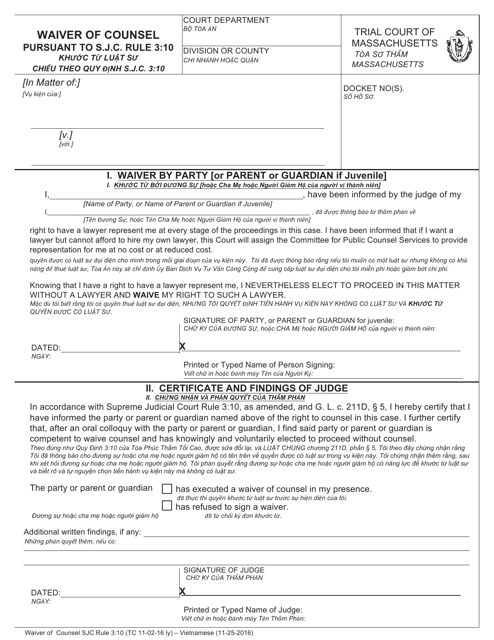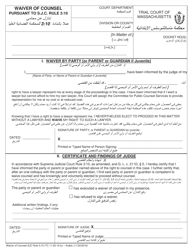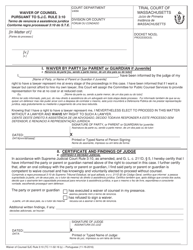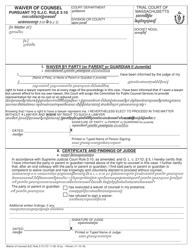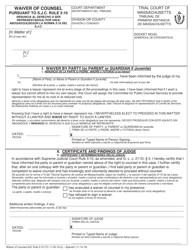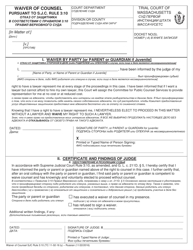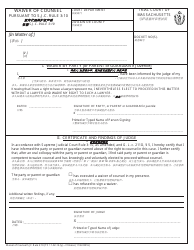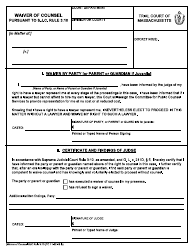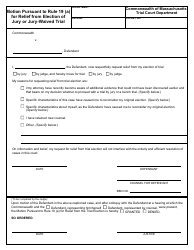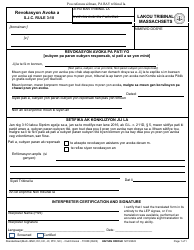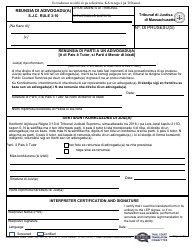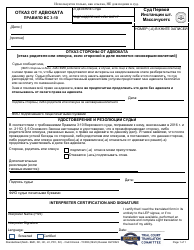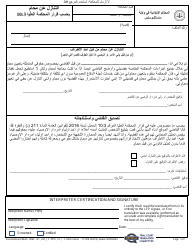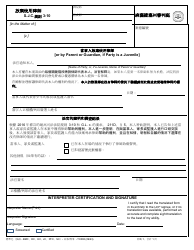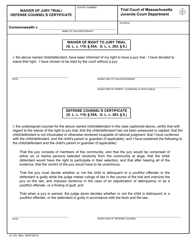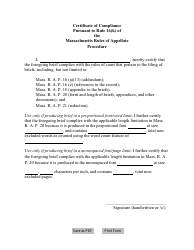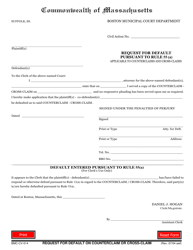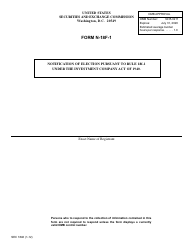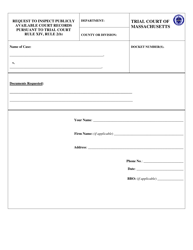Waiver of Counsel Pursuant to S.j.c. Rule 3:10 - Massachusetts (English / Vietnamese)
Waiver of Counsel Pursuant to S.j.c. Rule 3:10 is a legal document that was released by the Trial Court of Massachusetts - a government authority operating within Massachusetts.
FAQ
Q: What is a waiver of counsel?
A: A waiver of counsel is when a person chooses not to have a lawyer represent them in a legal matter.
Q: What is S.j.c. Rule 3:10?
A: S.j.c. Rule 3:10 is a rule in Massachusetts that governs the waiver of counsel.
Q: What does the waiver of counsel rule apply to?
A: The waiver of counsel rule applies to legal matters in Massachusetts where a person may be entitled to a lawyer.
Q: Who can waive counsel?
A: Any person who is legally competent and understands the consequences of waiving counsel can choose to do so.
Q: Is it mandatory to have a lawyer in Massachusetts?
A: No, it is not mandatory to have a lawyer in Massachusetts. A person can choose to represent themselves if they wish.
Q: What should a person consider before waiving counsel?
A: A person should consider the complexity of the legal matter, their understanding of the legal system, and the potential consequences of not having a lawyer before waiving counsel.
Q: Can a waiver of counsel be revoked?
A: Yes, a waiver of counsel can be revoked at any time if a person changes their mind and wants to have a lawyer represent them.
Q: Are interpreters provided for non-English speakers in Massachusetts?
A: Yes, in Massachusetts, interpreters are provided for non-English speakers to ensure they understand the legal proceedings.
Q: Is the waiver of counsel form available in Vietnamese?
A: Yes, the waiver of counsel form is available in both English and Vietnamese in Massachusetts.
Form Details:
- Released on November 25, 2016;
- The latest edition currently provided by the Trial Court of Massachusetts;
- Ready to use and print;
- Easy to customize;
- Compatible with most PDF-viewing applications;
- Fill out the form in our online filing application.
Download a printable version of the form by clicking the link below or browse more documents and templates provided by the Trial Court of Massachusetts.
